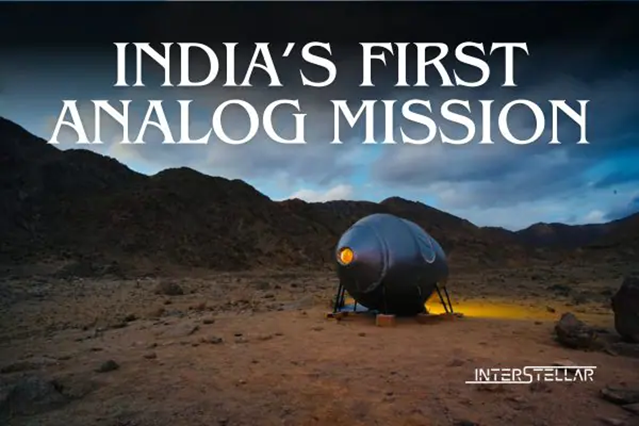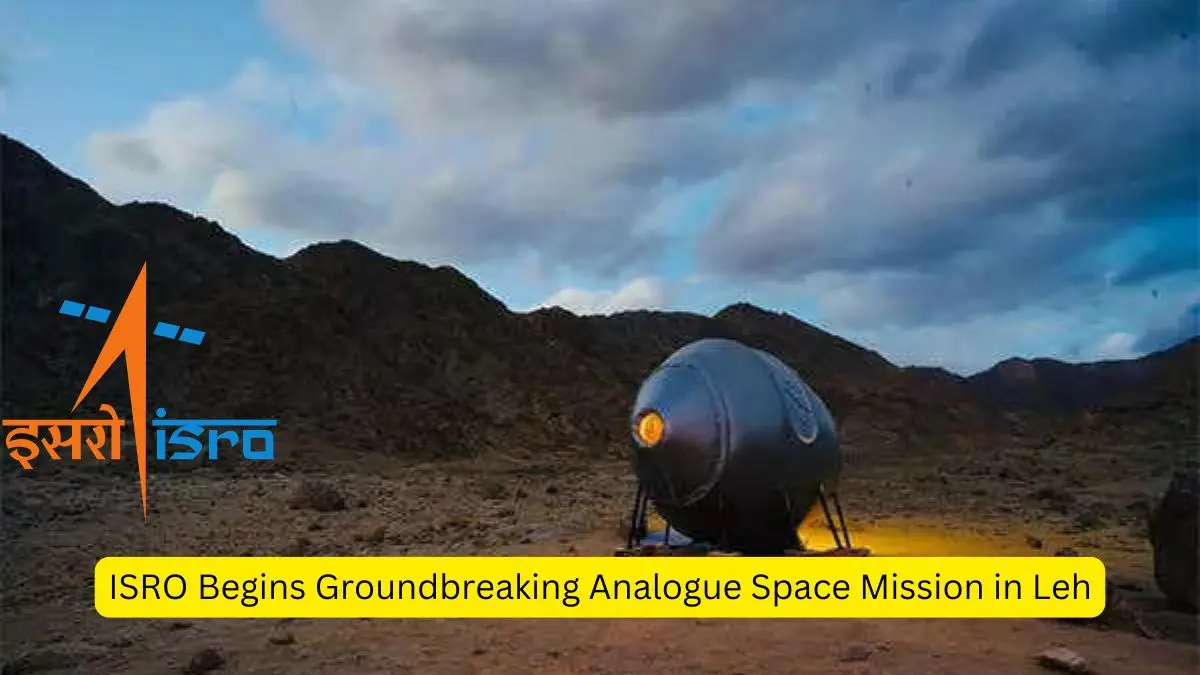ISRO Begins Groundbreaking Analogue Space Mission in Leh
The Indian Space Research Organisation (ISRO) has recently initiated a significant analogue space mission in Leh, which is a critical step toward advancing space research and technology in India. This mission, named “Himalayan Space Research,” aims to simulate the conditions of space on Earth to better understand how humans can live and work in outer space environments.
Objectives of the Mission
The primary objective of this analogue mission is to assess the physiological and psychological effects of prolonged space missions on human subjects. Participants will be subjected to extreme environmental conditions, such as limited oxygen levels and reduced atmospheric pressure, mimicking the challenges faced during actual space travel. This mission will help ISRO gather crucial data on how to prepare astronauts for future missions, especially those aimed at Mars and beyond.
Innovative Research and Development
ISRO’s analogue space mission incorporates advanced technologies and methodologies. The mission involves a diverse team of scientists, engineers, and medical experts who will monitor the health and performance of the participants. The data collected will be invaluable in developing life support systems and designing habitats that can sustain human life on other planets. Furthermore, this mission will enhance ISRO’s capability to conduct long-duration space missions and contribute to global space exploration efforts.
Community Engagement and Awareness
Alongside scientific research, ISRO is focusing on community engagement by involving local schools and institutions in Leh. Educational programs and workshops are being organized to raise awareness about space science and technology among students and the local population. This initiative not only fosters interest in STEM fields but also encourages the next generation of scientists and engineers in India.

Why This News is Important
Enhancing India’s Space Capabilities
The commencement of the analogue space mission underscores ISRO’s commitment to enhancing India’s capabilities in space exploration. By simulating conditions of space travel, ISRO aims to prepare its astronauts for the challenges they will face during actual missions. This initiative is crucial for India’s aspirations to become a leading player in global space exploration.
Contribution to Global Space Research
ISRO’s mission is set to contribute significantly to international efforts in space research. As countries collaborate on space missions, the data and findings from this analogue mission can provide insights that benefit global scientific communities. It positions India as a critical player in the collaborative exploration of outer space, particularly for missions targeting Mars and beyond.
Promoting Scientific Education
The outreach programs associated with this mission will help instill a passion for science and technology among young students. Engaging the local community and educational institutions fosters a culture of scientific inquiry, which is essential for developing a skilled workforce that can contribute to India’s future technological advancements.
Historical Context
India’s journey into space exploration began in the 1960s with the establishment of ISRO in 1969. Since then, the organization has made significant strides, launching numerous satellites and conducting successful missions, including the Mars Orbiter Mission (Mangalyaan) in 2013. With each mission, ISRO has demonstrated its growing capabilities in space science and technology.
The current analogue space mission is a natural progression in ISRO’s endeavors, building on the successes of past missions and addressing the need for in-depth research into the long-term effects of space travel on humans. It aligns with global trends in space exploration, where countries are investing in understanding how to sustain human life in space for extended periods.
Key Takeaways from “ISRO’s Analogue Space Mission”
| Serial Number | Key Takeaway |
|---|---|
| 1 | ISRO has initiated an analogue space mission in Leh. |
| 2 | The mission aims to simulate space conditions on Earth. |
| 3 | It focuses on studying the effects of long-duration space travel on humans. |
| 4 | Local community engagement and educational outreach are integral parts of the mission. |
| 5 | This mission contributes to India’s growing capabilities in global space exploration. |
Important FAQs for Students from this News
1. What is the primary objective of ISRO’s analogue space mission in Leh?
The primary objective is to simulate space conditions on Earth to study the physiological and psychological effects of long-duration space missions on human subjects.
2. How will ISRO conduct the analogue space mission?
ISRO will conduct the mission by placing participants in extreme environmental conditions that mimic those of space, such as limited oxygen levels and reduced atmospheric pressure.
3. Who will be involved in the mission?
The mission will involve a diverse team of scientists, engineers, medical experts, and participants who will undergo the simulation.
4. Why is community engagement important in this mission?
Community engagement helps raise awareness about space science among local schools and institutions, fostering interest in STEM fields and inspiring future scientists.
5. How does this mission contribute to India’s space exploration capabilities?
This mission enhances ISRO’s ability to prepare astronauts for future space missions, particularly those targeting Mars and beyond, solidifying India’s position in global space research.
Some Important Current Affairs Links

















